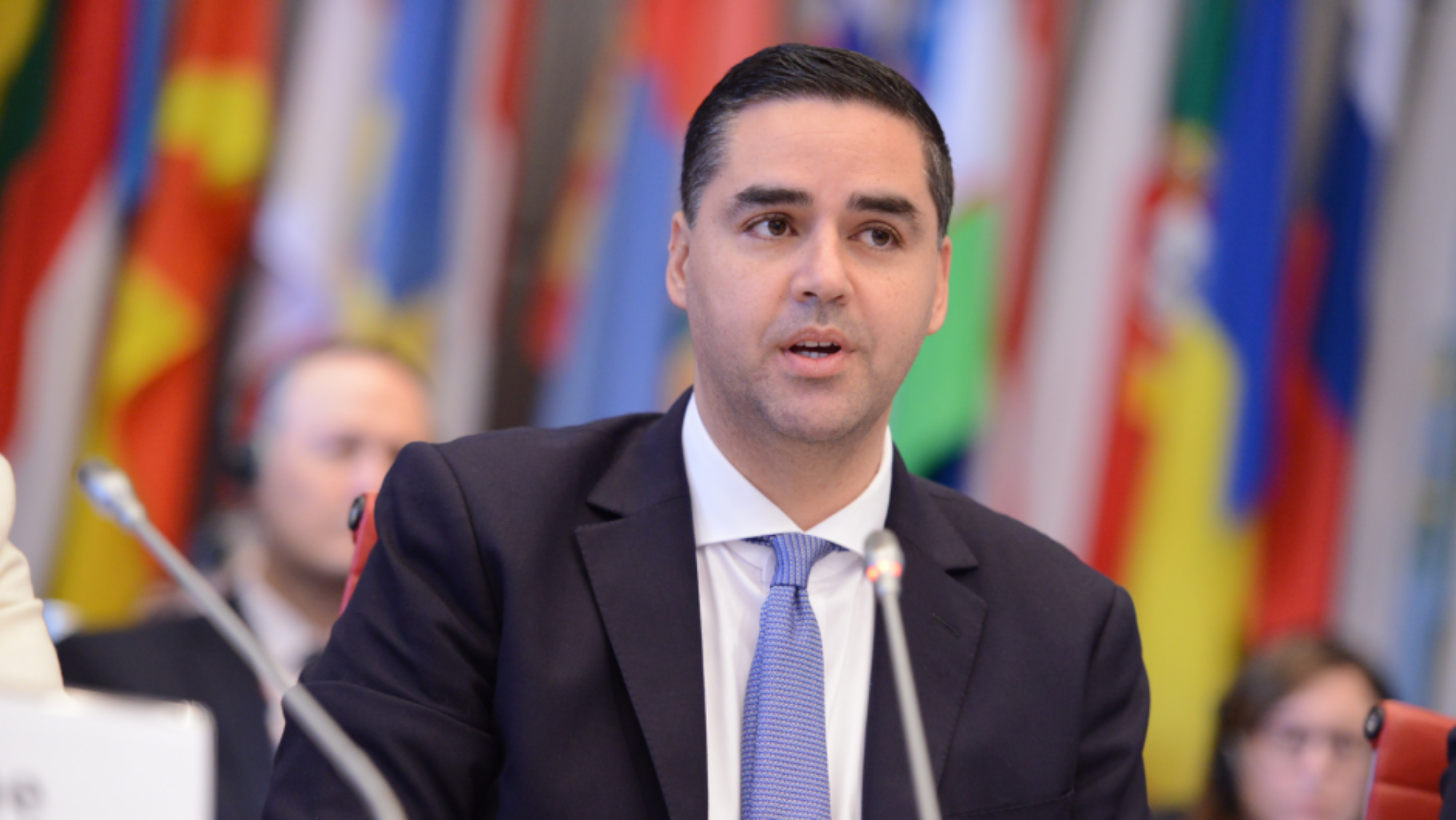OSCE/Micky Kroell

The OSCE Ministerial Council is set to meet in Malta next week. But what is it all about?
The 31st OSCE Ministerial Council (OSCE MC) will meet in Valetta, Malta, on December 5-6. The meeting is organized by the Maltese OSCE Chair and will be chaired by Ian Borg, Malta’s Foreign Minister and OSCE Chair-in-Office. It will bring together the foreign ministers (or their representatives) of the 57 OSCE participating states. But what exactly is the meeting, who will attend and what will be discussed?
What is the OSCE MC meeting?
The OSCE MC meeting is a high-level gathering convened to adopt decisions that guide the future work of the OSCE, the world’s largest regional security organization. It takes place annually, in the country holding the yearly-rotating OSCE Chair. This year, the Chair is Malta.
The meeting is also an opportunity for dialogue among foreign ministers on common security challenges in the OSCE region. Foreign ministers will deliver prepared statements during the plenary meeting of the MC, which will serve as a barometer to determine the mood and the atmosphere for discussion.
Ministers also have ample opportunities to hold bilateral meetings on the margin of the OSCE MC.
In the past two years, Russia’s war against Ukraine has cast a shadow on the meeting, with statements becoming increasingly confrontational, reflecting the grave tensions between Russia and the West.
Yet the OSCE remains one of the few places where ministers from countries in North America, Europe, Central Asia and Russia can still meet. Statements made by ministers in Malta are significant indicators for the future of Ukraine, the OSCE and European security.
This year’s meeting is different than usual because Malta has had very little time to prepare for the high-level gathering—a huge task for a small country like Malta. The OSCE MC will be the biggest international and diplomatic gathering Malta has ever hosted. This highlights the active role small states can play in multilateral institutions.
Valetta was only chosen to take over the Chair of the Organization in a last-minute decision in November 2023. Usually such decisions are taken several years in advance, allowing the respective country to prepare a substantive agenda for its time in office, and also to arrange logistics as well as security measures for hosting ministers from up to 57 countries.
The Maltese government will reintroduce “targeted checks” at Malta’s ports, including the airport and marinas, at the beginning of December, to ensure the security of the OSCE MC, the Times of Malta reported.
Who will attend the OSCE MC in Malta?
For this year’s meeting, Malta expects the attendance of over 30 ministers. According to Russian media, these include Russian Foreign Minister Sergey Lavrov, who will be traveling to an EU country for the first time since Russia’s invasion of Ukraine in February 2022.
Poland notably refused to issue a visa for Lavrov in 2023 and thus banned him from entering the country to attend the OSCE Ministerial Council meeting that took place under the Polish OSCE Chairmanship in Poland in December 2022.
The EU has not imposed a travel ban on Russian Foreign Minister Lavrov (although his assets have been frozen), seeking to leave open a channel of communication with Russia’s top diplomat.
SHR Monitor understands that U.S. Secretary of State Antony Blinken is also expected to attend the OSCE Ministerial Council meeting in Malta.
It is still not entirely clear whether Ukrainian Foreign Minister Andrii Sybiha will attend. But OSCE diplomats say that Ukraine has secured one of the very first speaking slots during the opening session of the MC on Thursday.
It’s important to note that the list of attendees can still change until the last moment.
What will be discussed and decided?
Prior to Russia’s invasion of Ukraine, ministers used to adopt several substantive decisions at the OSCE MC, covering a range of subjects from human rights to security, the economy and the environment. This is not the case anymore, because the room for consensus has shrunk dramatically since the start of the war.
But Malta will use the OSCE Ministerial Council meeting to make another push for agreement on a new OSCE senior leadership package.
“The appointment of the OSCE’s top leadership posts is a key priority for Malta’s Chairpersonship,” a spokesperson for the Maltese Chair said in a written statement. “While our goal is to finalize these decisions before the Ministerial Council, further deliberations may be necessary in Malta.”
OSCE diplomats, who spoke on the condition of anonymity to discuss internal deliberations, add that informal discussions are also taking place behind the scenes regarding the country that could chair the OSCE in 2026, with Switzerland considered as one option among others. (Finland is slated to chair the OSCE in 2025.)
A failure to adopt decisions on the OSCE’s senior leadership and on the 2026 Chair could further weaken the OSCE’s capacity to act at a time of increasing uncertainty, with a new U.S. administration taking office in January and the Ukraine conflict entering its fourth year.
The mandates of OSCE Secretary General Helga Schmid, OSCE High Commissioner on National Minorities Kairat Abdrakhmanov, OSCE Representative on Freedom of the Media Teresa Ribeiro and Director of the OSCE Office for Democratic Institutions and Human Rights Matteo Mecacci expired on September 3 without an agreement about successors being reached.
Malta’s Foreign Minister and OSCE Chair-in-Office Ian Borg in September appointed officers-in-charge to ensure the OSCE’s “operational integrity.” Still, the lack of consensus about senior posts has left the OSCE effectively rudderless, with the four crucial posts remaining vacant.
The leadership vacuum hits the OSCE at a time when the organization is already under strain. There has been no approved organizational budget since 2021, leading to reduced activities in the field as well as in the OSCE’s various departments and institutions.



Comments
* Your email address will not be published